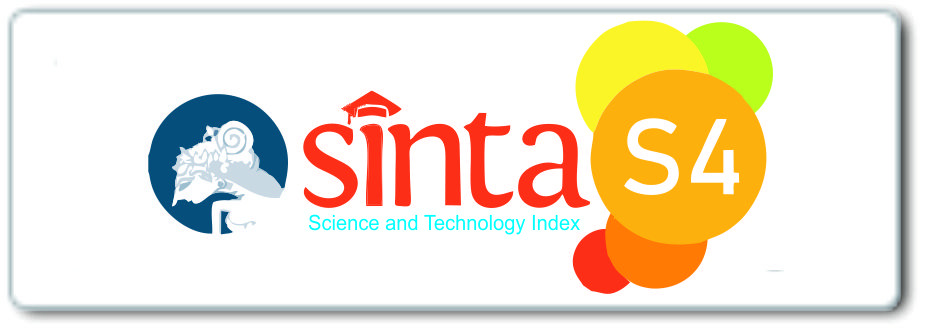Dynamics of Self-Compassion in Individuals with Childhood Sexual Abuse (CSA)
DOI:
https://doi.org/10.56988/chiprof.v4i2.90Keywords:
Childhood Sexual Trauma, Descriptive Phenomenology, Psychological Recovery, Self-CompassionAbstract
This study aims to understand how the process of self-compassion is formed in individuals who experienced childhood sexual abuse trauma by emphasizing the aspects of subjective experience and the psychological meaning attached. This research method uses a descriptive phenomenological approach involving three adult respondents with a history of such experiences. Data were collected through in-depth interviews and analyzed through the stages of phenomenological reduction, identification of meaning units, transformation of meaning into psychological expressions, and synthesis of essential structures. The results of the study indicate that self-compassion develops gradually through the process of emotional reflection, spiritual awareness, and social support. Three main dimensions of self-compassion, self-kindness, common humanity, and mindfulness were identified in the respondents' recovery process. Self-compassion functions as a trauma recovery mechanism that helps respondents reconstruct their self-narrative from victims to whole and empowered individuals. These findings indicate the urgency of developing self-compassion-based psychological interventions for survivors of childhood trauma.
Downloads
References
C. Downey and A. Crummy, “The impact of childhood trauma on children’s wellbeing and adult behavior,” Eur. J. Trauma Dissociation, vol. 6, no. 1, p. 100237, 2022, doi: 10.1016/j.ejtd.2021.100237.
S. Ali, S. A. Pasha, A. Cox, and E. Youssef, “Examining the short and long-term impacts of child sexual abuse: a review study,” SN Soc. Sci., vol. 4, no. 2, 2024, doi: 10.1007/s43545-024-00852-6.
Nurfazryana. Mirawati, “Dampak Psikologis Kekerasan Seksual Pada Anak Sexual Abuse , Child , Impact,” UNES J. Soc. Econ. Res., vol. 7, no. 2, pp. 15–24, 2022.
E. M. P. Dewi et al., “Mengenali Inner Child Untuk Berdamai dengan Luka Masa Kecil,” Madaniya, vol. 4, no. 2, pp. 640–648, 2023.
E. Kuzminskaite, B. W. J. H. Penninx, A. L. van Harmelen, B. M. Elzinga, J. G. F. M. Hovens, and C. H. Vinkers, “Childhood Trauma in Adult Depressive and Anxiety Disorders: An Integrated Review on Psychological and Biological Mechanisms in the NESDA Cohort,” J. Affect. Disord., vol. 283, no. September 2020, pp. 179–191, 2021, doi: 10.1016/j.jad.2021.01.054.
M. Cimesa, A. Sokic, and B. M. Cimesa, “Childhood Trauma and its Effect on Brain Development: Neurobiological Mechanisms and Implications,” no. May, 2023, doi: 10.13140/RG.2.2.31299.07203.
D. Cross, N. Fani, A. Powers, and B. Bradley, “Neurobiological Development in the Context of Childhood Trauma,” Clin Psychol (New York), vol. 176, no. 1, pp. 100–106, 2017, doi: 10.1177/0022146515594631.Marriage.
C. Wekerle, K. Kim, and N. Wong, “Child Sexual Abuse Victimization: Focus on Self-Compassion,” Front. Psychiatry, vol. 13, no. March, pp. 1–7, 2022, doi: 10.3389/fpsyt.2022.818774.
S. Surianti, “Inner Child: Memahami dan Mengatasi Luka MasaKecil,” J. Mimb. Media Intelekt. Muslim Dan Bimbing. Rohani, vol. 8, no. 2, pp. 10–18, 2022.
M. Sjöblom, “Health promotion through the lifespan-the phenomenon of the inner child reflected in childhood events-experienced by children, adults and older persons.” Luleå University of Technology, 2020.
K. D. Neff and M. C. Knox, “Self-Compassion BT - Encyclopedia of Personality and Individual Differences,” V. Zeigler-Hill and T. K. Shackelford, Eds., Cham: Springer International Publishing, 2020, pp. 4663–4670. doi: 10.1007/978-3-319-24612-3_1159.
F. Turk, S. Kellett, and G. Waller, “Testing a Low-Intensity Single-Session Self-Compassion Intervention for State Body Shame in Adult Women: A Dismantling Randomized Controlled Trial,” Behav. Ther., vol. 54, no. 5, pp. 916–928, 2023, doi: https://doi.org/10.1016/j.beth.2023.04.001.
L. Huang, J. Fan, J. Lemoult, P. Chi, Y. Zhao, and X. Chi, “Effects of a Brief Self-Compassion Online Intervention on Complex Posttraumatic Stress Symptoms Among Chinese University Students With Trauma History : A Pilot Randomized Controlled Trial,” 2024, doi: 10.1177/10497315241267248.
C. Cabaços et al., “The mediating role of self-compassion and repetitive negative thinking in the relationship between perfectionism and burnout in health-field students: A prospective study,” Pers. Individ. Dif., vol. 213, p. 112314, 2023, doi: https://doi.org/10.1016/j.paid.2023.112314.
J. W. Creswell and D. J. Creswell, Research Design, Qualitative, Quantitative and Mixed Methods Approaches, vol. Sixth Edit, no. 1. 2023. [Online]. Available: https://medium.com/@arifwicaksanaa/pengertian-use-case-a7e576e1b6bf
M. Mantzios and H. H. Egan, “On the role of self-compassion and self-kindness in weight regulation and health behavior change,” Front. Psychol., vol. 8, no. FEB, pp. 8–10, 2017, doi: 10.3389/fpsyg.2017.00229.
R. Wollast et al., “Trajectories of self-kindness, common humanity, and mindfulness during the COVID-19 pandemic: A person-oriented multi-trajectory approach,” PLoS One, vol. 18, no. 12 December, pp. 1–23, 2023, doi: 10.1371/journal.pone.0292522.
K. D. Neff, “Self-Compassion : Theory , Intervention,” pp. 1–26, 2023.
A. M. Gazo, A. M. Mahasneh, and F. Q. Al-Jobour, “Basic Psychological Needs and its Relationship with Self-compassion among University Students,” Islam. Guid. Couns. J., vol. 6, no. 2, pp. 1–12, 2023, doi: 10.25217/0020236395600.
T. Richardson, M. Sood, P. Bayliss, and K. Newman-Taylor, “Self-compassion as a mediator of the relationship between childhood sexual abuse and psychotic symptoms in clinical and non-clinical groups,” Br. J. Clin. Psychol., vol. 62, no. 3, pp. 689–697, 2023, doi: 10.1111/bjc.12429.
Downloads
Published
How to Cite
Issue
Section
License
Copyright (c) 2025 Dewi Rochmawati, Mulya Virgonita I. Winta, Margaretha Maria Shinta

This work is licensed under a Creative Commons Attribution-NonCommercial 4.0 International License.




















